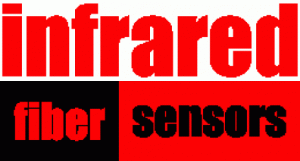Application Industry
The DiProbe can be launched into all kind of industries where chemical reaction processes are present today like
- Chemical (fine, general and speciality chemical)
- Agrochemical
- Pharmaceutical
- Biotechnology
- Polymer
- Pulp and Paper
- Cosmetics
- Biomedical
Application Fields
- Organic Synthesis (e.g. Gringard, Organometallic, Halogenations)
- Organic Synthesis is one of the key avenues to production of a drug. Traditionally, critical component concentrations are monitored during synthesis via chromatographic or other offline measurement techniques. Often the gaps between data points in time vs. concentration profiles produced by offline methods approach or exceed one hour. DiProbe technology allows critical component concentrations to be profiled with a temporal resolution of less than one second to several minutes. It is possible for new intermediates to be discovered due to the rapidity of data collection afforded by DiProbe technology. Additionally, components that are impossible to measure offline may be profiled, provided they possess measurable spectroscopic signatures. This attribute of DiProbe technology is invaluable for the quick, accurate determination of reaction endpoints in both the research and the production environment.
- Crystallization (e.g. Solubility Determination, Dissolution and Dispersions)
- DiProbe technology has great value as an in-situ probe of crystallization processes. Because the penetration depth of the infrared light into the crystallization medium is on the order of a few micrometers, only dissolved materials are interrogated. Thus, as the crystallization proceeds the infrared spectrum reflects the disappearance of the dissolved component. Univariate as well as multivariate analyses applied to the spectral data have been successfully employed to characterize crystallizations of drug substances and other materials
- Catalysis (e.g. Hydrogenations, High Pressure Appl., Homogenous Catalysis)
- DiProbe technology has great value as an in-situ kinetic probe. Data can be collected very rapidly, resulting in accurate determination of reaction rates. The nearly universal chemical compatibility of diamond allows data to be collected in challenging environments, such as strong acids and supercritical fluids. Last but not least DiProbe technology permits in-situ characterization of component concentrations, unstable species are observed that may not be measurable by chromatographic or other offline techniques.
- Biological (Fermentation, Enzymes, Biopolymers)
- Biological processes are becoming more and more common in the pharmaceutical and fine chemical industry. A significant percentage of today’s candidates in clinical trials are biopharmaceuticals. The presence of microorganisms demands strict control of the medium in which the process takes place. Sterility is hard to accomplish but is a prerequisite for the success of e.g. fermentations. Therefore, sophisticated automation and sensor technology is key in the implementation of successful biological processes.
Fermentations represent an alternative to synthetic reactions for the production of complex molecules such as antibiotics and vitamins. Their importance stems from the ability of living cultures to safely and efficiently produce specific chemical species that are often difficult to obtain at high yields and low cost through synthetic routes. At the production level the objectives of commercial fermentations are similar to traditional chemical processes: high product yield, low impurities, optimized cycle time, and efficient operation. DiProbe technology can aid in achieving these goals via real-time monitoring of key component concentrations which can be used to control critical process variables.
- Biological processes are becoming more and more common in the pharmaceutical and fine chemical industry. A significant percentage of today’s candidates in clinical trials are biopharmaceuticals. The presence of microorganisms demands strict control of the medium in which the process takes place. Sterility is hard to accomplish but is a prerequisite for the success of e.g. fermentations. Therefore, sophisticated automation and sensor technology is key in the implementation of successful biological processes.
- Polymerizations (e.g. Acrylates, Urethanes, Esterifications)
- The applications of different polymers in the coating, paint, automotive, are numerous. In order to induce and control polymerizations, several effects need to be understood and controlled. Automation and monitoring of the polymerization does not only result in far better understanding of the progress, but can also be used to terminate the polymerization at the right moment, or simply control addition of reagents. Typical applications are acrylate, Urethanes, Esterifications, Styrenes, Amides and Olefin
- Bio-Medical
- Analysis of body liquids: e.g. dried samples
- Analysis of cancer
- Skin analysis
- Analysis of the effect of formulations on different skin types
- Analysis of beverages
- Analysis of food
Application Examples
Polymerization Monitoring
Typical ATR-FTIR Spectra of Butyl Acrylate Solution Polymerization in Toluene

Organic Synthesis

Food Industry




Bioreactor Monitoring

Skin Measurements


